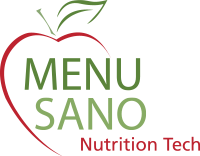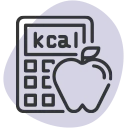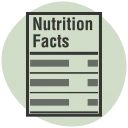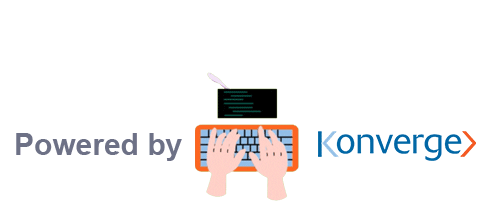In today’s food industry landscape, accurate allergen labelling stands as a pivotal factor in ensuring consumer safety and trust. This article delves deep into why precise allergen labeling is crucial and how it impacts both consumers and food businesses.
According to a study published in the Journal of Food Protection, approximately 15 million Americans have food allergies, with allergic reactions responsible for more than 200,000 emergency room visits each year in the United States alone.
Based on these numbers alone, there’s a growing concern about the importance of accurate allergen labelling in the food industry! So, how can food manufacturers and other businesses have accurate allergen labelling and gain consumers’ trust?
Understanding Allergen Labelling
Allergen labelling refers to the practice of clearly identifying potential allergens in food products. These allergens can trigger adverse reactions in individuals with specific allergies. Common allergens include peanuts, tree nuts, milk, eggs, soy, wheat, fish, and shellfish. Therefore, accurate labelling is essential for individuals to make informed choices about what they consume, especially those with severe allergies.
MenuSano specializes in generating accurate nutrition fact labels that incorporate comprehensive allergen details. This allows users to manually enter allergen information into the labels. By leveraging technology for healthier and more accurate labelling, food businesses can enhance compliance with regulatory standards and demonstrate a strong commitment to consumer safety and transparency.

Regulatory Standards and Compliance
Regulatory bodies mandate strict guidelines for allergen labelling. For instance, the FDA requires that major food allergens (such as peanuts, tree nuts, milk, eggs, fish, shellfish, wheat, and soy) be clearly labelled on packaged food products sold in the U.S. This includes using specific language to identify the allergen ingredients in the product’s ingredient list, such as “Contains: [allergen]” or “Allergen: [allergen]”. Example: A snack bar containing peanuts must have a label that states “Contains: Peanuts” or “Allergen: Peanuts” on its packaging.
The CFIA mandates that food manufacturers in Canada declare priority food allergens (similar to the FDA’s list) when they are present in a product. This includes using standardized allergen labeling terminology and symbols to ensure consistency and clarity for consumers. For example, a food product containing eggs must have a label that consists of the word “Eggs” or an appropriate allergen symbol to indicate the presence of eggs.
In the UK, the FSA regulates allergen labelling to ensure that consumers are informed about allergens in pre-packaged foods. Food businesses must provide clear and accurate allergen information, including potential cross-contamination risks, either on the product label or through other accessible means (such as online or on request). For example, a bakery selling bread must inform customers if the bread contains gluten (from wheat) and highlight any potential cross-contamination risks with other allergens like nuts.
Compliance with these standards is a legal requirement and a moral obligation for food manufacturers and distributors. Failure to adhere to these regulations can result in severe legal consequences and, more critically, jeopardize consumer health.
MenuSano offers a valuable solution by providing nutrition analysis software that adheres to the latest regulations set by the FDA, CFIA, and the UK’s FSA. This ensures that food businesses can create accurate and compliant nutrition fact labels with detailed allergen information. Companies can mitigate risks associated with non-compliance by utilizing MenuSano’s software. At the same time, demonstrates a proactive commitment to protecting consumer health and safety through precise allergen labelling practices.
Impact on Consumer Safety
The primary reason for accurate allergen labelling is consumer safety. For individuals with allergies, even a trace amount of an allergen can provoke life-threatening reactions. Clear and precise labelling empowers consumers to identify and avoid products that may contain allergens they are sensitive to, reducing the risk of accidental exposure.
Furthermore, transparent labelling builds trust between food businesses and their customers. When consumers can rely on the accuracy and clarity of allergen information, they are more likely to choose products from brands that prioritize their safety. This trust fosters loyalty and positive brand perception.

Legal and Ethical Responsibilities
Food businesses bear a critical legal and ethical obligation to safeguard public health through accurate allergen labelling. The legal aspect of this responsibility stems from regulatory requirements enforced by agencies like the FDA, CFIA, and FSA. It mandates the identification of common allergens in food products to protect consumers from potential health risks. Failure to comply with these regulations can result in serious legal consequences, including fines, product recalls, and damage to a company’s reputation.
Read more: Cost-Effective Solutions for Creating FDA-Compliant Nutrition Labels
Allergen Labeling Best Practices
To ensure effective allergen labelling, food businesses should adopt comprehensive best practices:
Ingredient Analysis
Thoroughly analyze all ingredients used in food production to identify potential allergens. Maintain accurate records of suppliers and ingredient specifications.
For example, a snack bar manufacturer committed to consumer safety routinely conducts ingredient analysis. During one assessment, they discovered that almonds sourced from a supplier shared facilities with peanuts, a common allergen.
Responding swiftly, they updated labels to warn consumers of potential peanut exposure, exemplifying their dedication to safety and compliance. This underscores how meticulous ingredient analysis safeguards consumers with allergies and maintains industry trust.
In summary, ingredient analysis isn’t just a formality—it’s crucial for allergen management and consumer protection.
Read more: Preventing Allergen Cross-Contact in Supplement Manufacturing
Robust Labeling Protocols
Implementing clear and consistent labelling protocols is crucial to ensuring consumer safety and compliance with regulatory standards in the food industry. By prominently highlighting allergens on product packaging using standardized language and recognized symbols, food businesses empower consumers to make informed choices about the products they purchase. These protocols not only enhance transparency but also contribute to building trust between businesses and consumers. Additionally, fostering a safer and more reliable marketplace for individuals with food allergies.
Highlighting The Importance of Accurate Allergen Labeling
Accurate allergen labelling is not merely a regulatory requirement. It represents a fundamental aspect of public health and ethical business practice in the food industry. Food businesses fulfill their legal obligations by adhering to strict labelling protocols and investing in comprehensive staff training while demonstrating a genuine commitment to consumer safety and transparency. The impact of accurate allergen labelling extends beyond regulatory compliance, influencing brand reputation, consumer trust, and overall public health outcomes. In a landscape where food allergies pose significant risks, ensuring clear and reliable allergen information empowers individuals to make informed choices and fosters a culture of responsibility and integrity within the marketplace.
MenuSano offers a game-changing solution for ensuring accurate allergen labelling in food products, promoting consumer safety and trust. By utilizing MenuSano’s advanced tools and resources, food businesses can revolutionize their approach to allergen identification and declaration. Schedule a free demo today to see how MenuSano can empower your business to prioritize precise allergen labelling, fostering a safer and more transparent food industry that protects the health and well-being of consumers.



















